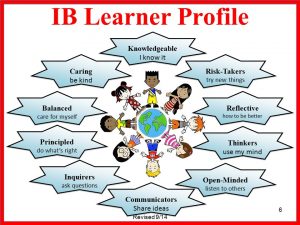The NCIS Primary School curriculum is based on a guided inquiry approach to learning and teaching. Inquiry-based units of study, known as “Transdisciplinary Units”, are the focus for learning in homeroom classes and, when appropriate, are integrated into other curriculum areas. Students experience what it is like to think and act like a historian, scientist, engineer, or mathematician. Within each unit, students and teachers identify together what they already know, what they want to know, what they need to know, and how best they might find that out. Students are active:
- exploring, wondering, and questioning
- experimenting and playing with possibilities
- researching and seeking information
- collecting data and reporting findings
- clarifying existing ideas and reappraising events
- deepening understanding through the application of a concept or rule
- making and testing theories
- making predictions and acting purposefully to see what happens
- elaborating on solutions to problems
The following five essential elements are explored and developed within the PYP curriculum framework:
What do we want students to understand?
The PYP curriculum framework has been designed around a key set of important concepts or ideas. These eight concepts are at the core of the curriculum and provide the foundation for concept-driven exploration across all subject areas:
- Form What is it like?
- Function How does it work?
- Causation Why is it like it is?
- Change How is it changing?
- Connection How is it connected to other things?
- Perspective What are the points of view?
- Responsibility What is our responsibility?
- Reflection How do we know?
What do we want students to know?
Knowledge is developed through the Unit of Inquiry themes at each grade level. These transdisciplinary, thematic units are used to integrate subject knowledge across the main curriculum areas of English Language Arts; Mathematics; Science; Social Studies; The Visual and Performing Arts; Chinese Language Arts; and Personal, Social, and Health Education (PSPE). Unit themes shall:
- be significant for all students
- give students opportunities to explore challenging, relevant, and engaging knowledge
- encourage knowledge to be looked at in a transdisciplinary way
- be revisited throughout the student’s years of schooling
What do we want the students to be able to do?
The skills are those things that students need to be able to do to succeed in a changing, challenging world. Students need to master a range of skills to prepare themselves for their future education and for life in general. A comprehensive set of Communication, Research, Self-management, Social, and Thinking Skills are taught through structured inquiry experiences in the Units of Inquiry.
What do we want the students to value and feel?
It is important that students recognize the importance of Attitudes alongside Concepts, Knowledge, and Skills as being an integral part of the curriculum. The curriculum promotes appreciation, commitment, confidence, cooperation, creativity, curiosity, empathy, enthusiasm, independence, integrity, and respect. There are many opportunities throughout the curriculum to develop and promote positive attitudes.
How do we want students to act?
Through the Units of Inquiry, we endeavor to create learning experiences that inspire students to actively apply new learning in their daily life. Students are encouraged to reflect, choose wisely, and to act responsibly with their peers, school staff, and in the wider community.
In the PYP, a balance is sought between acquisition of essential knowledge and skills, development of conceptual understanding, demonstration of positive attitudes, and taking of responsible action. One of the most significant and distinctive features of the IB-PYP is the six transdisciplinary themes. These themes provide IB World Schools with the opportunity to incorporate local and global issues into the curriculum, effectively allow students to “step beyond” the confines of learning within subject areas, and develop international mindedness.

The six IB transdisciplinary themes are as follows:
Where we are in place and time – an inquiry into orientation in place and time; personal histories; homes and journeys; the discoveries, explorations, and migrations of humankind; the relationship between and the interconnectedness of individuals and civilizations, from local and global perspectives.
How the world works – an inquiry into the natural world and its laws, the interaction between the natural world (physical and biological) and human societies; how humans use their understanding of scientific principles; the impact of scientific and technological advances on society and on the environment.
Please contact our PYP Coordinator
Please contact our PYP Coordinator
THE EXHIBITION
The ‘Exhibition’ is one of the culminating experiences for students in the PYP. Students will carry out one of their final extended, collaborative inquiry projects under the guidance of their teachers. They will be involved in synthesizing the core elements of the PYP and sharing them with the whole school community. It is an opportunity for students to exhibit the attributes of a life-long learner they have been developing throughout their primary school years. Students will be given flexibility in their choice of real-life issues or problems to be explored and investigated in preparation for the ‘Exhibition’.
Nanchang International School is an IB world school for the Primary Years Programme. These are schools that share a common philosophy—a commitment to high quality, challenging, international education that Nanchang International School believes is important for our students.
Only schools authorized by the IB Organization can offer any of its three academic programmes: the Primary Years Programme (PYP), the Middle Years Programme (MYP), or the Diploma Programme (and in addition the IB Career-related Certificate).
For further information about the IB and its programmes, visit http://www.ibo.org.